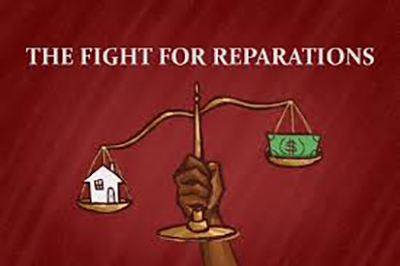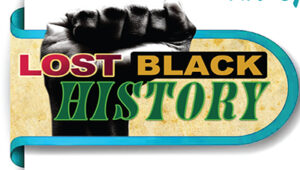By Don Valentine
In an ironic twist of fate, Black women have been at the vanguard for reparations. Heroines like Jenny Slew were on the forefront of our fight. According to Women History Blog.com, “Jenny Slew is believed to have been the first person held as a slave to be granted freedom through trial by jury…” She was born about 1719 as the child of a free white Woman and a Black slave. She lived her life as a free woman until 1762 when she was taken and enslaved by John Whipple Jr.”
In 1765, Jenny was able to get an attorney to represent her, and sued her master for her freedom, charging that Whipple had held her in bondage illegally. She stated that because her mother was free, she was free. The case was initially decided in Whipple’s favor, but Jenny kept fighting. Kent Page summarized the case, “During the trial, Whipple argued that he possessed a bill of sale for Slew, and thus challenged her kidnapping charges. He also maintained that her status as a married woman nullified her legal right to sue; her husband, he argued, would have to sue on her behalf since married women’s legal rights were subsumed by those of her husband under the doctrine of couverture. The court did not agree as Slew had been married to other enslaved men. Therefore the validity of her marriage was in question, and Jenny won her case against Whipple.
In the 1740’s Elizabeth Freeman a.k.a. “Mum Brett” was noted by the Constitution Center.org, “… the first African American woman to successfully file a lawsuit for her freedom in the state of Massachusetts.” In this time period she became a slave for the wealthy Colonel Ashley and his wife, a member of a prominent family in western Massachusetts.
The Constitution Center.org wrote that, “Colonel Ashley served as a judge of the Berkshire Court of Common Pleas. In January 1773, Ashley moderated the local committee that wrote the Sheffield Declaration. Also known as the Sheffield Resolve, the Declaration was a petition against British tyranny, as well as a manifesto for individual rights of American colonists. In particular, it declared that ‘mankind in a state of nature are equal, free, and independent of each other, and have a right to the undisturbed enjoyment of their lives, their liberty and property.’ Notably, this language was to be found again in the Declaration of Independence of 1776 and in the Massachusetts Constitution of 1780. At some point, Mum Bett overheard Colonel Ashley and his dinner guests ‘talking over the Bill of Rights… that all people were born free and equal.’ Mum Bett recognized that the principles of liberty and equality the men discussed could also apply to her…” That was the basis for the argument to gain her reparations.


